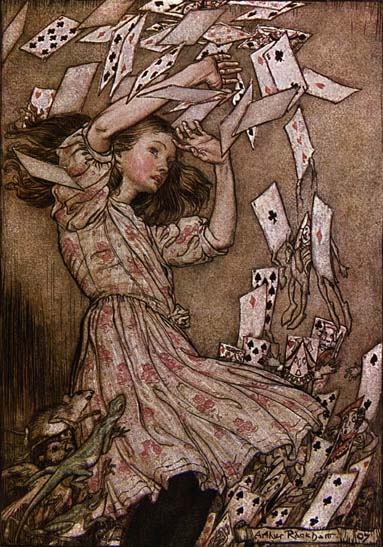 Betrayal (1978), written by Harold Pinter, directed by Rick Snyder for Steppenwolf Theatre. Jerry (Ian Barford), Robert (Tracy Letts), Emma (Amy Morton) in March 13, 2007 performance
Betrayal (1978), written by Harold Pinter, directed by Rick Snyder for Steppenwolf Theatre. Jerry (Ian Barford), Robert (Tracy Letts), Emma (Amy Morton) in March 13, 2007 performance Briefly, The Unbearable Lightness of Being (1984), written by
Betrayal is a play about a love triangle. The plot: Emma has a seven-year affair with Jerry, the best friend of her husband Robert. Time moves backward, so we see the results of the affair before seeing its evolution and beginnings. It takes us out of the emotions as the characters are experiencing them, as we know that all their dreaminess at the beginning is going to end in disillusionment. The language is acerbic, the kind of language that only works in a theatre (one of the major problems with the movie version of Closer was that it was impossible to imagine that sort of speech away from a stage.) The performances were good, though I wish that they had dropped the English accents (the play is set in
[Note: the play is also a bit dated, and not just in clothing and hairstyles. Set from 1968-1977, it’s now impossible to believe that a couple would have an affair for seven years including setting up a “second home” for their liaisons, but claim to not want to split up their respective homes because it would be so devastating for their children. Nowadays they would have just gotten divorced from their spouses around two years in, gotten married, and been some semblance of a big happy family. Honesty and personal fulfillment are more important than obligation and responsibility, or so it goes now.]
The play focuses on lying and hypocrisy: when Emma tells Jerry that she and Robert are separating (two years after their own affair has ended) and she has told Robert about the affair, they are both horrified that Robert himself has been cheating on Emma for years and Jerry is angry that Robert has not told him that he’s known about Jerry’s affair with Emma. (As stated earlier, because time is backwards, this occurs at the beginning of the play so all the interactions between these characters going back over the years are seen through the filter of what is to come.) The female perspective – why Emma has an affair with Jerry for years – is missing. However, it is entirely credible, given Jerry and Robert’s interaction, that what Robert is saying is true: “I never told you I knew [about Jerry and Emma's affair], because you’re my best friend and I probably prefer you to her anyway.” Ouch.
We’re also unsure why Jerry and Emma ever started their affair. The usual “thrill” of an affair is the risk of getting caught. But Emma is caught five years in, and continues on for another two years anyway. Is the betrayal itself exciting, in a passive-aggressive manner?
Betrayal is really about deception. All three characters do what deceivers do: to deceive is to construct a reality of one’s own making. In The Unbearable Lightness of Being, Tomas and Sabina do likewise. They betray and deceive, in order to be lighter than the air, because such decisions ultimately do not matter (contrasted with the idea of eternal return). But it is also unbearable that these choices are insignificant, that lives could be insignificant. The worlds they make, which they think make them float, in fact burden others, force others into the same silence.
The world of deception is ultimately a world of self-imposed silence. It mimics the world of the flood, when God silenced humanity for its transgressions, except it is self-inflicted. It is to be in prison, where the only language one knows, and the only world one can construct, is limited by one’s own darkened imagination. It is a curse to be unable to communicate with others: “And now you will be silent and not able to speak until the day this happens, because you did not believe my words, which will come true at their proper time" (Luke 1:20). To lack language that speaks to others is to relive the curse of Genesis 3:14-19: “He laid His hands upon him and diminished him” (from B. Sanhedrin 38b), and to be unable to stand and tremble before God. (I need to blog about standing before God soon; wait for it.) Indeed, God is to be praised for “He has preserved our lives, and kept our feet from slipping (Psalm 66:9). And so the Psalmist prays, “Set me free from my prison, that I may praise Your name” (Psalm 142:7).
The illustration is Arthur Rackham's Alice and the Pack of Cards (1907) and I like it - I'm not suggesting that Alice in Wonderland is a story of childhood self-deception. Just like I'm classifying this performance as a movie though it was a play.

No comments:
Post a Comment